EVENT | Unlocking Solar Capital: PAYGO Financial Analysis & Reporting
An Industry Framework to Evaluate Performance of PAYGo Solar Businesses
Solar home systems (SHS) and other solar powered appliances are made affordable through innovative pay-as-you-go (PAYGo) financing. PAYGo jointly addresses the challenges of energy access and financial inclusion for the more than one billion people — mainly rural and low income — who remain off-grid.
This nascent and dynamic industry is populated by young companies with evolving business models, many of which face similar challenges to scale and raise debt financing at suitable terms. While commercial investors have invested approximately $160 million into PAYGo companies over the last two years, PAYGo businesses still lack debt financing and rely on equity financing for shortfalls. With the right set of standardized financial reporting benchmarks, commercial funders and potential investors could more easily finance and evaluate performance for the PAYGo sector.
JOIN US
PAYGo Financial Analysis and Reporting (PAYGo FAR) Workshop
Tuesday, November 6, 2018
2 – 5 p.m.
(Followed by cocktail hour)
Radisson Blu Hotel, Kigali, Rwanda
Conference Room AD12
2 – 3 p.m. Session 1 | PAYGo KPIs: Taking Stock of Where We Are
In this first session, we will review the evolution of pay-as-you-go (PAYGo) solar sector’s key performance indicators (KPIs) and financial reporting to get a sense of where we are today. We will discuss the progress made to date in advancing the Lighting Global/GOGLA KPIs and share feedback from companies, investors, and other stakeholders who have used them. Daphne Pit from GOGLA and Nicky Khaki from CGAP will present, and a Q&A session will follow.
3 – 3:50 p.m. Session 2 | Facilitating an Industry Dialogue: A Taste of What’s to Come
Audience members will be invited to take part in a survey before the workshop to identify key issues in financial analysis and reporting for the PAYGo Solar sector. After reviewing the results and taking stock from Session 1, we will start the conversation between audience members with experience in some of these issues. While we will not be able to solve them in the brief time we have, we hope to demonstrate that the experience of those in the room can be leveraged to make progress.
4 – 5 p.m. Session 3 | Establishing an Open and Transparent Industry Process
In the last session we will present a proposed framework for an open, transparent industry process addressing PAYG financial analysis and reporting. It proposes a governance structure that allows for inclusive stakeholder feedback while driving decision-making and empowers technical working groups to produce content and recommendations. This session will conclude with remarks from Koen Peters from GOGLA and a feedback survey from workshop members.
5 – 7 p.m. | Cocktail Party
We are pleased to invite attendees of the workshop to drinks and canapés at the Radisson Blu (room to be determined).
We aim to finalize the event by identifying clear action steps and upcoming events that will serve to support this industry-wide effort. Additional location and agenda details will be distributed to those who RSVP. Questions? Contact us at cgap@worldbank.org. To download the documents from this session, please click here.
RSVP NOW
Workshop Organizers
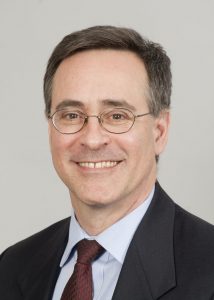 |
Russell Sturm, LIGHTING GLOBAL A thought leader in the field of sustainable energy market development, Russell leads IFC’s global energy access advisory business. In this role he works with the private sector to mobilize commercial investment that accelerates uptake of climate-friendly technology and expands access to energy and water. Russell is the creator of the World Bank Group’s Lighting Global program and he oversees IFC’s global portfolio of energy access programs. Previously head of IFC’s climate change advisory business, Russell led IFC’s climate advisory strategy, and built a global portfolio to strengthen climate resilience and scale adoption of low carbon technologies and practices. Russell’s work with commercial banks was the foundation of IFC’s $1 billion sustainable energy finance business. |
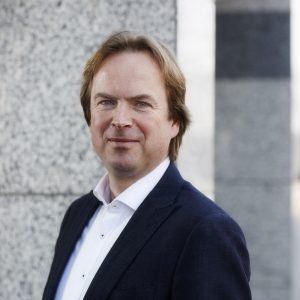 |
Koen Peters, GOGLA Koen has been executive director of the GOGLA Secretariat since August 2014. He has over 20 years of international work experience, in both public and private sector roles. Prior to joining GOGLA, Koen worked as renewable energy expert within the Dutch Ministry of Foreign Affairs. Earlier, he worked for 10 years as consultant supporting international business initiatives in developing countries. During this period he co-founded and co-managed a solar PV company in Tanzania and was project manager of one of the first projects aimed at solar mobile phone charging solutions, in Uganda. |
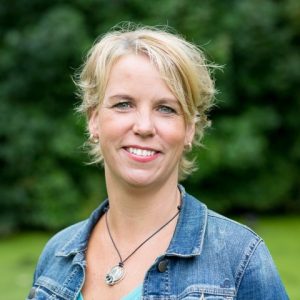 |
Daphne Pit, GOGLA Daphne is a senior adviser to GOGLA’s Access to Finance program. Prior to joining GOGLA, Daphne worked as manager for the Green and Inclusive Economy team at DOEN Foundation. She has joined the TCX team in a business development role and the ElectriFI team as investment manager. Daphne is part of the board of SIMA Fund, is a member of the Credit Committee of Lendahand, and has several advisory functions for energy access companies. Daphne is also involved as a mentor in several energy access accelerators. |
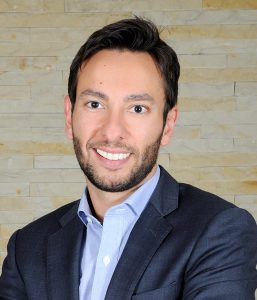 |
Nicky Khaki, CGAP Nicky Khaki leads CGAP’s work developing metrics and reporting standards for the Solar PAYGo Sector. Nicky has over fifteen years of professional experience across private equity, venture capital, impact investing, and corporate finance in the U.S. and in Africa. He lives in Johannesburg where he is a partner at Gluon Limited, a global private investment company. Nicky holds a M.A. from Johns Hopkins in International Affairs and Economics with a concentration in International Development and a B.A. in Math and Economics from the University of Virginia. |
 |
Alexander Sotiriou, CGAP Alexander leads CGAPs work on financial innovations for development, which aims to understand how innovations in financial services can be used to address some of the most pressing challenges in development, including access to energy, water, and education. He joined CGAP from MicroVest, where he was the investment manager for Latin America and managed a portfolio of investments in the region’s leading microfinance and small and medium enterprise finance institutions. Earlier, he was an associate in Citi’s Johannesburg and Mexico City offices, where he developed corporate and project finance solutions for corporations and governments across Africa and in Mexico. He has also worked as an analyst for a private equity fund in Mexico and as a Peace Corps Volunteer in Burkina Faso and Guatemala. |
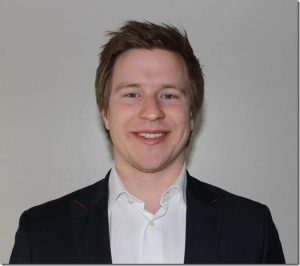 |
Tobias Ruckstuhl, PERSISTENT Tobias Ruckstuhl focuses on bringing his deep financial and venture markets expertise in due diligence processes as well as providing expert advisory to investees from an investor’s perspective but also through taking on operational mandates in the form of interim CFO positions. Tobias holds a masters in international affairs from the University of St. Gallen as well as bachelors in business & economics. He previously worked as head of accounting, finance and logistics for a safari and conservation company in Central Africa as well as starting up his own entrepreneurial ventures. Before joining Persistent, he was a management consultant at Accenture in Switzerland, a global consulting company, specializing in digital and technology consulting. |
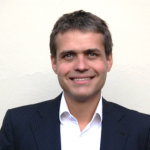 |
Sebastian von Wolff, GIZ Sebastian von Wolff heads the Sustainable Finance Team in the sector program on Financial Sector Development at the German Development Cooperation, GIZ. He has more than 15 years of experience in development finance with a focus on financing small and medium size renewable energy projects in Europe and Africa. After having started his career at the German Energy Agency (dena) in Berlin, Sebastian was based in Johannesburg, South Africa between 2008 and 2011 and responsible for renewable energy project development activities at Orbeo, a joint venture of Rhodia and Société Générale. Before joining GIZ in 2016, he was heading the Energy Finance Team at Finance in Motion, an impact investor focused on development finance based in Frankfurt. Sebastian holds a degree in engineering (Dipl.Ing.) from the University of Stuttgart and obtained an MBA from Anglia Ruskin University, Cambridge. |
###
In the context of this PAYGo Financial Analysis and Reporting (PAYGo FAR Initiative), CGAP and Lighting Global are independent actors with an impartial interest in market development striving for an outcome that will unlock billions in capital from investors. GOGLA is a global industry association representing PAYGo providers.
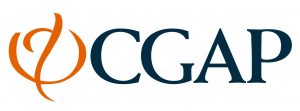
The Consultative Group to Assist the Poor is a global partnership of more than 30 leading organizations that seek to advance financial inclusion. CGAP develops innovative solutions through practical research and active engagement with financial service providers, policy makers, and funders to enable approaches at scale. Housed at the World Bank, CGAP combines a pragmatic approach to responsible market development with an evidence-based advocacy platform to increase access to the financial services the poor need to improve their lives. As part of its efforts, CGAP has taken an increased interest in exploring and catalyzing the use of financial inclusion as a means of achieving other international development objectives, including increasing access to electricity, water and education.

GOGLA is the global association for the off-grid solar energy industry. Established in 2012, GOGLA now represents over 135 members as a neutral, independent, not-for-profit industry association. Its mission is to help its members build sustainable markets, delivering quality, affordable products and services to as many households, businesses and communities as possible across the developing world. The products and solutions that GOGLA members sell transform lives. They improve health and education, create jobs and income opportunities and help consumers save money. To find out more, go to www.gogla.org.

Lighting Global is the World Bank Group’s initiative to rapidly increase access to off-grid solar energy for the one billion people living without grid electricity world-wide. Through Lighting Global, IFC and the World Bank, with support from the Energy Sector Management Assistant Program (ESMAP), work with manufacturers, distributors, governments, and other development partners to build and grow the modern off-grid solar energy market, which is expected to reach 740 million people by 2022. Our programs — which include Lighting Africa, Lighting Asia, and Lighting Pacific — provide market intelligence, quality assurance, consumer education, business support services, and support for access to finance, at the global, regional, and country levels. We are also poised to address new markets and opportunities that emerge as the off-grid energy sector evolves. Our activities now include support for the productive use of solar (e.g. solar irrigation & milling), community services (e.g. for schools and health centers), super-efficient household appliances (e.g. fans, TVs, household refrigeration), and innovative pay-as-you-go (PAYG) business models that enable rural, low income populations to access modern clean energy solutions.


